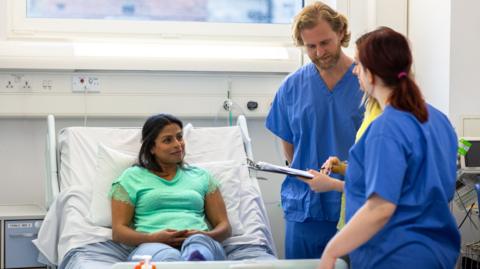The chancellor called it the biggest hike in funding for the NHS since 2010 - £22bn extra for the front line and another £3bn for equipment and buildings for the rest of this financial year and the following one. That may sound a lot. But the overall health budget for this year alone is in excess of £190bn.
The NHS accounts for the bulk of this. We don’t know quite how this money will be divided between this year and next. But it is likely to mean an increase of close to 4% a year after inflation.
That is basically in line with the historical average – and certainly is more than during the 2010s. But what impact it will have remains to be seen. A chunk will undoubtedly go on pay rises, including the 22% increase for junior doctors.
Winter is also just around the corner – and hospitals have been warning for months they are over-stretched. The government though hopes there will be enough left over to start making an impact on the hospital backlog.
It’s promised 40,000 extra appointments and operations a week. The problem the government faces is that extra money has not necessarily translated into extra treatments.
Over the past five years the budget has increased by nearly a fifth when you take into account inflation. But the number of patients starting treatment has gone up by just 3%.
